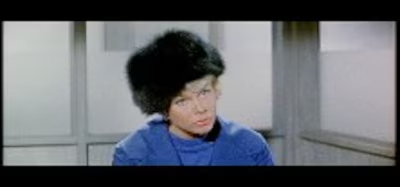Ross Hunter

About
Biography
Biography
This film producer, a former school teacher and actor, became widely known in the 1950s and '60s for a series of lush, glossy romances, many directed by Douglas Sirk and starring such icons as Lana Turner, Rock Hudson and Susan Hayward. His career was much more versatile than posterity will have it, though. After serving in the Army and teaching school, Hunter spent the mid-'40s as a contract actor at Columbia, appearing in such films as "Louisiana Hayride" (1944), "A Guy, a Gal and a Pal" (1945) and "The Sweetheart of Sigma Chi" (1946). Neither Hunter nor Columbia's Harry Cohn were happy, and his association ended.
Hunter began teaching acting and directed a stage production or two before returning to films as a producer with Universal. His first project was a Barbara Stanwyck melodrama, "All I Desire" (1953), the first of ten films with director Douglas Sirk. Hunter stayed with Universal through 1970, forming his own production unit, Ross Hunter Productions, in 1961.
Hunter is best-known for his series of high-end romances, beautifully costumed first by Bill Thomas and later by Jean Louis. "The Magnificent Obsession" (1954) and "All That Heaven Allows" (1956) showcased the unlikely love duo of Rock Hudson and Jane Wyman; "Back Street" (1961) had Susan Hayward suffering in flowing chiffon; and an elegantly middle-aged Lana Turner emoted her way through "Imitation of Life" (1959), "Portrait in Black" (1960) and the umpteenth remake of "Madame X" (1966).
Hunter also excelled in light comedy, notably the first Rock Hudson/Doris Day co-starrer, "Pillow Talk" (1959), the Debbie Reynolds vehicles "Tammy and the Bachelor" (1957) and "This Happy Feeling" (1958), and a number of light Sandra Dee comedies. Among his later films was the delightfully campy "Thoroughly Modern Millie" (1967), which starred Julie Andrews and also provided rare film showcases for Carol Channing and Beatrice Lillie. Hunter also produced Westerns ("Tumbleweed," 1953; "The Spoilers," 1955), war films ("Battle Hymn," 1956) and musicals ("Flower Drum Song," 1961; the dreadful "Lost Horizon," 1973, made, ironically, for Columbia). Among his myriad other notable films were the teen drama "The Restless Years" (1958), the dreadful thriller "Midnight Lace" (1960), the thoughtful drama "The Chalk Garden" (1964) and the blockbuster hit "Airport" (1970), which earned a Best Picture Oscar nod.
In 1975, Hunter turned to television, producing five TV-movies and miniseries from 1975- 79, all for NBC. The most successful of these were "Arthur Hailey's 'The Moneychangers'" (1976) and the old-age drama "A Family Upside Down" (1978), which won Fred Astaire an Emmy and co- star Helen Hayes a nomination.
Filmography
Director (Feature Film)
Cast (Feature Film)
Producer (Feature Film)
Production Companies (Feature Film)
Cast (Special)
Producer (TV Mini-Series)
Life Events
1942
Taught school in Cleveland and Los Angeles
1944
Signed to long-term contract with Columbia Pictures as performer
1946
Suspended by Columbia head Harry Cohn (final film as actor, "The Sweetheart of Sigma Chi", for Monogram)
1947
Began working as associate producer on films at Universal
1953
First film as producer, "All I Desire", directed by Douglas Sirk for Universal
1961
Formed Ross Hunter Productions
1970
Produced his biggest hit film, "Airport"
1971
Joined Columbia Pictures; produced final film, "Lost Horizon"
1974
Joined Paramount
1975
Produced first TV-movie, "The Lives of Jenny Dolan" (NBC)
1979
Produced final TV-movie, "The Best Place to Be" (NBC)
Photo Collections
Videos
Movie Clip












Trailer








Family












